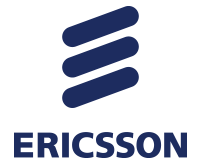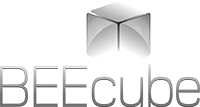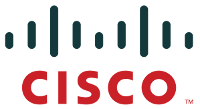| |
Patrons

|
Magyar Telekom is the principal provider of fixed line telecommunications services in Hungary, with approximately 1.8 million fixed voice access lines as March 31, 2012. We are also Hungary’s largest mobile telecommunications services provider, with almost 5.3 million mobile subscribers as of March 31, 2012. We provide fixed line and mobile telecommunications, Internet and TV products and services for consumers and infocommunication (ICT) solutions for business and corporate customers. In 2010, Magyar Telekom has entered the retail energy market offering electricity and gas services to its customers.
Magyar Telekom’s activities cover two key business areas:
- fixed line and mobile communications services for residential customers (T-Home and T-Mobile brands) and small businesses (Telekom brand);
- corporate services provided to large corporate customers and public sector (T-Systems brand).
Under the corporate ’T’ brand are comprised Magyar Telekom’s employer and HR, financial and investor relations, legal and corporate affairs, sustainability and corporate responsibility, innovation and business development, technology and networks activities. Magyar Telekom’s subsidiary companies operating in Hungary are managing ICT, content, media and other, non-access services provided under various brands. Through our majority owned international subsidiaries, we are also the principal telecommunications service provider in Macedonia and Montenegro and alternative service provider in Bulgaria and Romania.
Magyar Telekom Plc is a limited liability stock corporation incorporated and operating under the laws of Hungary. Our ordinary shares are listed on the Budapest Stock Exchange and the company also maintains a program with American Depositary Shares (ADSs) traded on OTC markets. Magyar Telekom’s majority shareholder (59.21%) is MagyarCom Holding, fully owned by Deutsche Telekom AG. Our headquarters is located at 55 Krisztina krt., 1013 Budapest, Hungary.
|
| |
|
 |
Ericsson is the world's leading provider of communications technology and services. We are enabling the Networked Society with efficient real-time solutions that allow us all to study, work and live our lives more freely, in sustainable societies around the world. Our offering comprises services, software and infrastructure within Information and Communications Technology for telecom operators and other industries.
- More than 40 percent of the world’s mobile traffic passes through network equipment supplied by Ericsson
- The networks Ericsson supports for operators serve more than two and a half billion subscribers
- The networks Ericsson manages for operators serve more than 900 million subscribers
- Ericsson has 30,000 granted patents, comprising one of the industry’s strongest portfolios
- Ericsson has over 57,000 service professionals
- Ericsson has customers in more than 180 countries
- Ericsson has been in the telecoms market for 136 years and has more than 100 thousand employees
Communication is changing the way we live and work. Ericsson plays a key role in this evolution, using innovation to empower people, business and society. We provide communications networks, telecom services and multimedia solutions, making it easier for people all over the globe to communicate. Broadband networks are society’s new communication highways – vital infrastructure which we nowadays take for granted. Just as telephony did, broadband is now going mobile and becoming affordable for more people. Around the world, people are getting equal access to realtime information, wherever they are and whenever they want. There are few inventions that have had such a profound effect on the lives of so many. In the future, not just people and places will be connected, but also things. Anything that can benefit from being connected will be connected. In 2020, we envision 50 billion connected devices for many applications, such as the control of power consumption in our homes and remote health monitoring of patients.
Ericsson supports its customers in the convergence of fixed and mobile networks. For users, this means enabling the same broadband services on any screen. For operators it enables efficient handling of applications, services and subscribers.
|
| |
|
 |
Since 1976, National Instruments (http://www.ni.com/sdr/) has equipped engineers and scientists with tools that accelerate productivity, innovation and discovery. NI’s graphical system design approach provides an integrated software and hardware platform, speeding the development of any system needing measurement and control. Engineers and scientists use this platform from design to production in multiple industries, advanced research, and academia. NI ensures customer success with an ecosystem of services, support and more than 700 Alliance Partners worldwide. The company’s long-term vision and focus on improving society through its technology also enables the success of its employees, suppliers and shareholders.
With graphical programming software and modular, open hardware, NI has redefined how engineers work throughout the entire product design cycle, resulting in reduced time to marketing and lower development costs. Headquartered in Austin, Texas, NI has over 6 800 employees with direct operations in over 40 countries. The company sells products to more than 35,000 companies in 90 countries. In 2011 National Instruments was ranked number 18 in the World's Best Multinational Workplaces List. In 2013 for the fourteenth consecutive year, FORTUNE Magazine named National Instruments to the publication’s annual list of the 100 Best Companies to Work For. NI ranks #35 on this year’s list. |
| |
|
 |
BEEcube’s All Programmable Platforms are the most advanced approach to the research and development of new technologies for wired and wireless communications.
Companies and universities are creating the next generation of wireless communications using our commercial off-the-shelf (COTS) platforms: from early algorithm exploration with Simulink, to real-time prototyping, to the deployment of complete working solutions.
At the core of BEEcube’s technology are FPGAs, multi-Gigabit per second digital and analog interfaces, and the tools for coding and debugging your most demanding communications applications.
BEEcube products include All Programmable Rack Servers like the BEE4, All Programmable ATCA blades like the BEE7, the flexible and affordable miniBEE “R&D in a Box”, and a large family of mixed-signal FMC cards for LTE-Advanced, WLAN, E-band, radar, and SDR applications. |
| |
|
 |
Cisco (NASDAQ: CSCO) enables people to make powerful connections-whether in business, education, philanthropy, or creativity. Cisco hardware, software, and service offerings are used to create the Internet solutions that make networks possible-providing easy access to information anywhere, at any time. Cisco was founded in 1984 by a small group of computer scientists from Stanford University. Since the company’s inception, Cisco engineers have been leaders in the development of Internet Protocol (IP)-based networking technologies. Today, with more than 65,225 employees worldwide, this tradition of innovation continues with industry-leading products and solutions in the company’s core development areas of routing and switching, as well as in advanced technologies such as: Consumer Networking, Networking, Security, Unified Communication, Telepresence, Collaboration, Data Center, Virtualization, Unified Computing Systems. |
| |
|
|
|
PATRONS >>
PATRON PACKAGES >>
EXHIBITORS >>
CALL FOR EXHIBITION >>
CONTACT INFO >>
|





